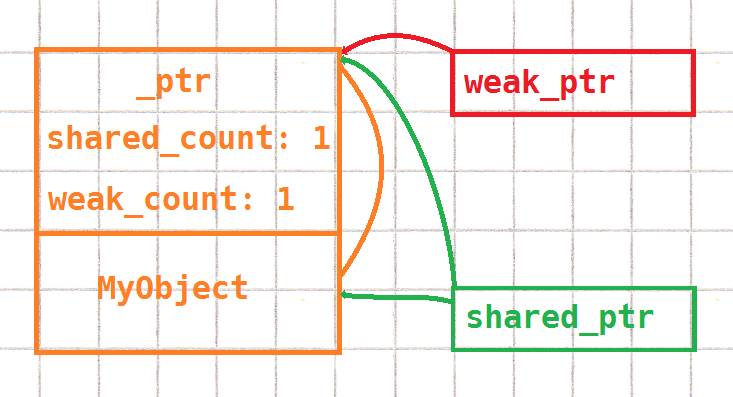
std::make_shared vs. the Normal std::shared_ptr Constructor
There are two different ways to create a std::shared_ptr: via one of its constructors and via std::make_shared. Both have their merits and different tradeoffs.


There are two different ways to create a std::shared_ptr: via one of its constructors and via std::make_shared. Both have their merits and different tradeoffs.
In C++, there are a few ways how values that we would consider different compare equal. A short overview.
With the new C++ standards, we got a lot of features that feel like “quality-of-life” features. They make things easier for the programmer but do not add functionality that wasn’t […]
The term “Modern C++” is often used interchangeably with “Code using the new C++ standard”. Here, “new” may be anything from C++11 to C++17 or even whatever is available of […]
Today I’ll continue the little CMake tutorial series. We’ll add a few options and a bit of fine-tuning to the compilation of our example project.
Have you ever seen one of those nasty errors that appear on one machine and not on another? To be able to track those down we need a reproducible build […]
In the last week, I had several occurrences that again taught me something I already knew – at least in theory. Local build results can be deceiving.
As promised in the last post about CMake, today we’ll use a proper CMake project structure for our “Hello CMake” project.
Sometimes we want to express the state of “nothing meaningful” instead of a value. This is the use case for C++17’s std::optional.
Last week, we’ve started our little CMake project with a “Hello CMake” one-liner. Now it’s time to expand that example by adding another target and information about the project.